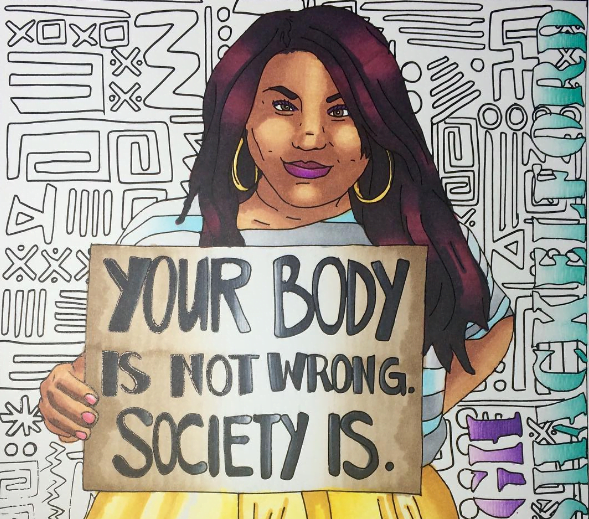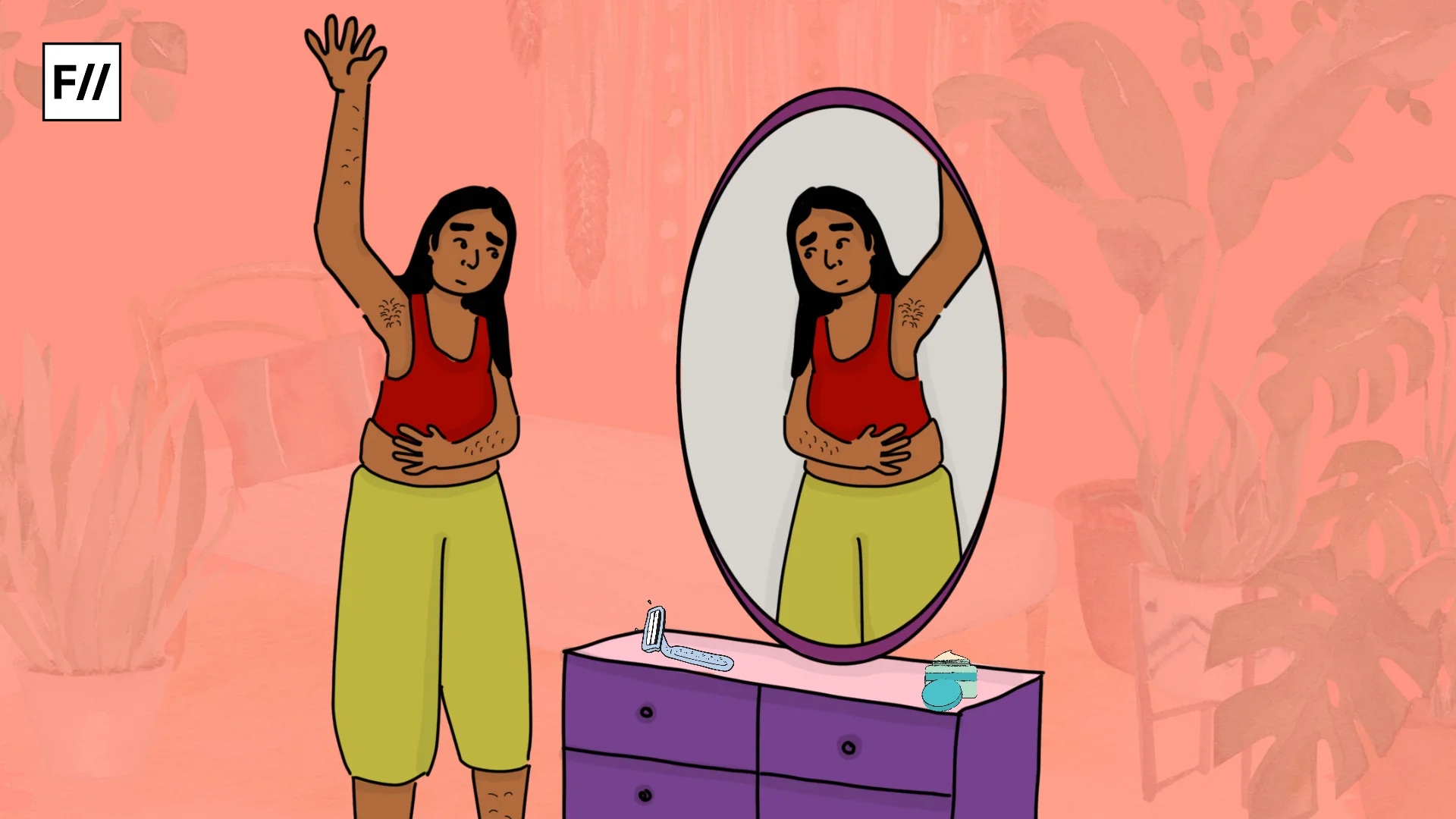I came upon this article, which spoke about how you can love yourself into losing weight. Two years ago, after battling with diet culture and eating disorders for almost a decade, I was flirting with the idea of never dieting again (I know, radical). Articles like this do a poor job at hiding the message of diet culture within layers of so called self-love. But in so many words, they are still trying to promote the twisted idea of “health” and chasing after the unachievable dream of being happy at a smaller size. For someone dipping their leg into the fat acceptance and body positive pool, messages like those in this article give mixed signals. So, body positivity still means I have to lose weight? But I would be allowed one “cheat meal” – maybe brunch with girlfriends and an anniversary dinner with wine, because hey, mental health is still health, right?
When you really think about the message sent across by this article, they’re still telling you that you aren’t “beautiful” because of those love handles. They’re still telling you that having fat rolls is the worst possible thing that can happen, but to remove it from your body, you need to accept that you have it. Accept that you’ve done something bad in your past (like eaten food), be honest with yourself, so you can change your habits and become “worthy” again.
To me, the whole concept of losing weight because you love yourself so much that you want the best for yourself seems to completely go against the very definition of body positivity. Here’s a great article by Kaila Prins about why the definition of body positivity is not up for debate. The message of body positivity is rooted in accepting yourself for contentment, and not in accepting yourself to finally achieve the goal of weight loss. Body positivity is not an alternate method to weight loss.
The whole movement encourages you to live your life as a queer person, as a transgender person, as a fat person, as a short person, as a tall person, as you – unapologetically.
The message of body positivity is rooted in accepting yourself for contentment, and not in accepting yourself to finally achieve the goal of weight loss.
This is exactly why the concept of a “good fatty” is misguided and frankly a pathetic excuse for health. You’re a good fatty if you choose to have a salad over a burger, not because you really feel like eating a salad, but because it’s the only habit a fat person can have that will merit society’s approval.
What about fitness instructors/trainers who preach the concept of balance? I’ve lived the lie of being an exercise addict and an orthorexic for “health” long enough to know that the message – in its raw, unadulterated, organic form (intentional puns!) – is to lose weight, to occupy less space, to have a toned tummy, to have a lifted butt and to eliminate cellulite. Between the lines, it’s just about us wanting to always aspire to change ourselves because right now, who we are is not okay. They only lead us to adopt the idea of “deserving” food or rest. A message like “You can have one marshmallow a week when you’ve been “good” with “clean eating” and “daily exercise” is so extremely toxic for the mind, because ‘deserve’ has no place in a movement focused on self-worth. So, your rest day and your lone “cheat meal” really does not qualify for #bodypositivity.
So, here’s the problem I don’t have with the concept of loving yourself to lose weight: you’re entitled to your own value and moral system, and to your own idea of “health”. Lose weight if that’s what you want, and have lots of bubble baths and spa days while you’re at it. Here’s the problem I do have with it: don’t justify what you are doing as body positive, as self-love, and don’t impose your own interpretation on the movement itself. The rest of us will live our lives just fine without your judgment.
Also read: In Search Of The ‘Perfect’ Body
Featured Image Credit: @allisontunis | Instagram
About the author(s)
1 part Bangalore, 1 part New York, 2 parts animal lover, all parts feminist. I'm a passionate ally for fat justice and fat acceptance movement, I also like to chime into conversations about global feminism,discrimination towards people of color and sexism in science & tech.




